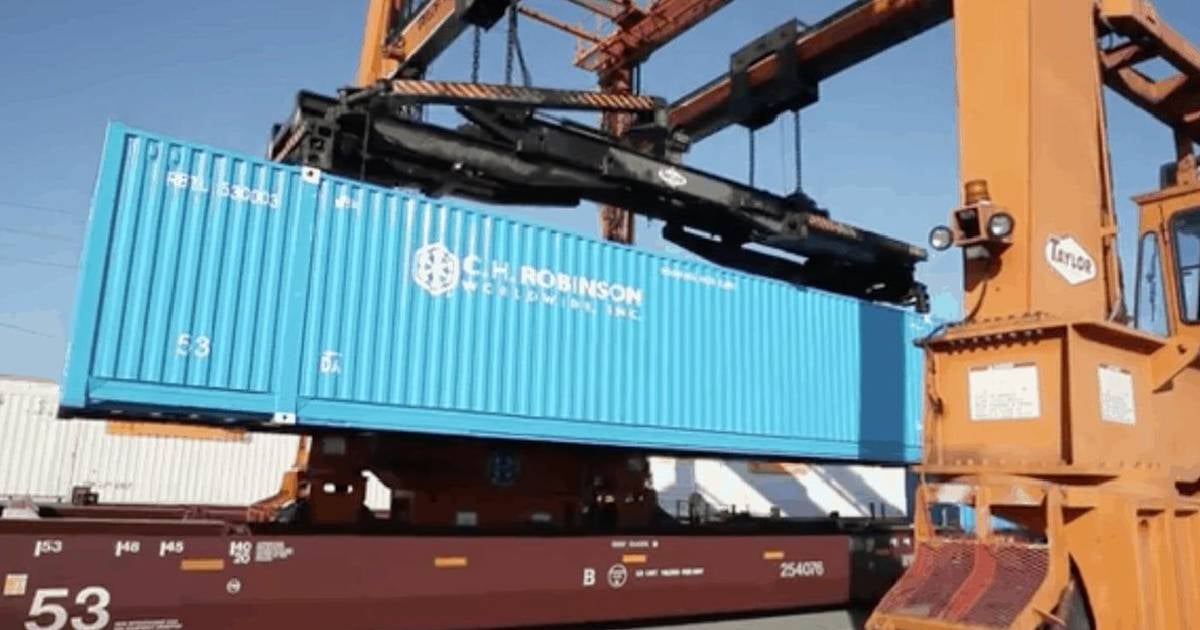
Related videos:
The Office of Foreign Assets Control (OFAC) of the U.S. Department of the Treasury imposed a fine of $257,690 on the logistics and transportation company C.H. Robinson International (CHR) for violating economic sanctions targeting Cuba and Iran.
According to the digital outlet Café Fuerte, citing the official statement as its source, the violations were committed by five subsidiaries of the company located in China, Spain, Australia, Canada, and Peru, between 2017 and 2022.
The apparent violations include 82 transactions related to the transportation of goods from Cuba and Iran, as well as service agreements with an airline from the latter country, which violate the international sanctions imposed by the U.S. government on those authoritarian regimes.
Details of the infractions
In the case of Cuba, the identified violations originated from the Canadian subsidiary of CHR, C.H. Robinson Canada Ltd., which transported products of Cuban origin in at least six transactions. In total, the subsidiary managed 71 shipments of Cuban and Iranian goods, valued at approximately $448,731.
OFAC indicated that many of these violations occurred because the subsidiaries had not updated their internal systems to comply with CHR's sanction controls. This oversight allowed some transactions to go unnoticed, resulting in the apparent violations.
A mitigated case, but not without penalties
Although the initial fine calculated by OFAC amounted to 28.6 million dollars, authorities significantly reduced the figure to 257,690 dollars after considering several mitigating factors.
Some of these were that CHR voluntarily reported the violations to OFAC and fully cooperated with the investigation, and that it had not received any previous sanctions for similar violations in the last five years.
The company also took immediate measures to correct the errors, such as implementing a manual retention plan in its operations and establishing a task force to oversee international transactions.
An impact on U.S.-Cuba relations
The sanction against CHR comes at a time of heightened political tension between Washington and Havana. The communist regime has denounced OFAC's restrictive measures as part of a strategy of "economic and financial encirclement" that directly impacts the island.
In response to the recent sanctions and the potential return of Donald Trump to the White House in January 2025, Cuban leader Miguel Díaz-Canel urged for "vigilance and unity" against what he views as a hostile policy from the United States.
During an event in Havana, Díaz-Canel called for popular mobilizations to condemn the embargo and emphasized the need to "resist firmly," as Café Fuerte recalled in its journalistic coverage.
He also stated that they will move forward "by enhancing development programs" through "innovation and hard work."
The U.S. keeps Cuba on the list of state sponsors of terrorism
Just a few days ago, the U.S. government confirmed that Cuba will remain on the list of state sponsors of terrorism, according to the most recent State Department report on terrorism in 2023.
The decision is based on the assessment that the Cuban government continues to provide safe haven to terrorists and fugitives from justice, as well as its relationship with guerrilla groups.
A reminder for global companies
The case of CHR highlights the strict control policies that the United States maintains over its economic sanctions. For international companies, such measures send a clear message: any transaction that violates the restrictions imposed on sanctioned countries, such as Cuba and Iran, can lead to severe penalties, even if the operations are conducted through foreign subsidiaries.
C.H. Robinson International, founded in 1905 and with revenues of $17.6 billion in 2023, is among the leading multimodal transportation companies globally. However, this incident highlights the importance of maintaining rigorous compliance systems, especially in sensitive markets under sanctions.
Frequently Asked Questions about U.S. Sanctions and the Situation in Cuba
Why was C.H. Robinson International fined for violating sanctions against Cuba?
The company C.H. Robinson International was fined $257,690 by the Office of Foreign Assets Control (OFAC) of the U.S. Department of the Treasury for violating economic sanctions directed against Cuba and Iran. The violations were related to transactions by its subsidiaries that involved the transportation of goods originating from Cuba and Iran, which contravenes the restrictions imposed by the U.S. government on these countries.
How does this fine affect relations between the United States and Cuba?
The sanction against C.H. Robinson International occurs within a context of heightened political tension between the United States and Cuba. The Cuban regime has denounced these restrictive measures as part of a strategy of "economic and financial blockade" that directly impacts the country. Such actions reinforce the critical stance the Cuban government maintains against U.S. policies.
What measures did C.H. Robinson International take to prevent future sanctions?
C.H. Robinson International implemented a manual retention plan in its operations and established a working group to monitor international transactions. These measures aim to correct the errors that led to the violations and to ensure compliance with international sanctions in the future.
What significance does the case of C.H. Robinson International hold for other international companies?
The case of C.H. Robinson International sends a clear message to international companies about the importance of complying with the economic sanctions imposed by the United States. Any transaction that violates these restrictions can lead to severe penalties, even if the operations are conducted through foreign subsidiaries.
Filed under: